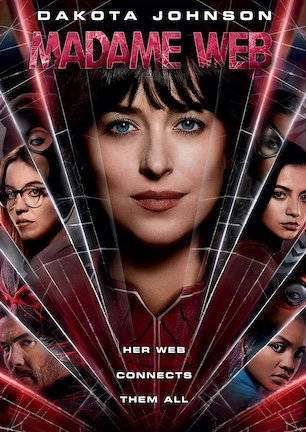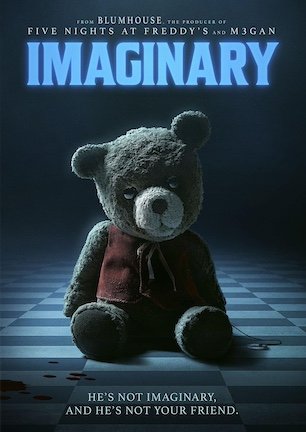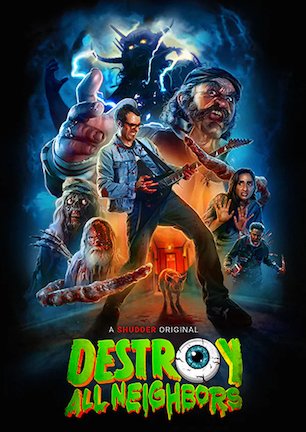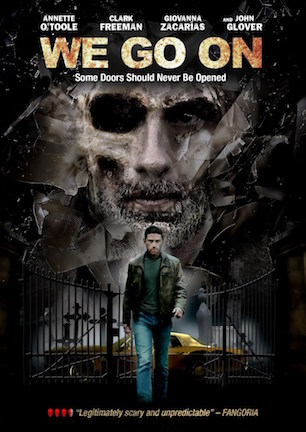Studio: Shami Media Group
Director: Lutfu Emre Cicek
Writer: Lutfu Emre Cicek
Producer: Lutfu Emre Cicek
Stars: Derya Alabora, Esin Harvey, Gorkem Mertsoz, Refik Zafer Cicek, Erdogan Unlu, Ozlem Durmaz, Ilgin Cakur, Oguzhan Tolon
Review Score:
Summary:
A pregnant couple finds their rental home occupied by a crazed woman who claims she is the house’s rightful owner.
Review:
With his pregnant wife Bengi growing increasingly distant, Bertran thinks the perfect boomerang for their marriage might be an island getaway in a quaint and quiet rental home. What Bertran doesn’t know is that the upcoming baby is not to blame for his wife’s behavior. That’s the least of his worries right now. Something else Bertran doesn’t know is that Naciye, the woman who has called the rental property home since childhood, never left when the deed changed hands. And Naciye deals with presumed trespassers in ways that repeatedly result in a great deal of bloodshed and a fresh mound of dirt in the backyard.
Turkish horror film “Naciye” (pronounced Nah-gee-yeh – or like Nadia with a “j”) is a different type of home invasion thriller in that the invader is already in the house from the start. If you view Naciye as the intruder, that is.
Equal parts antagonist and protagonist, Naciye is more complex than most movie killers. “Naciye” is a movie decidedly about its title character and treats her as both villain and victim, sinister and sympathetic. Working in tandem with the script, exceptional actress Derya Alabora builds motivation behind violent intent extending far beyond simple psychosis singularly focused on meaningless murder.
Writer/director Lutfu Emre Cicek is open about the influences on “Naciye.” Even closed eyes can see comparisons to the signature suspense of Roman Polanski and overt similarities to Julien Maury and Alexandre Bustillo’s French frenzy “Inside.” Of his film, Cicek explains that he “wanted to make something that would be familiar to horror fans in its homages to horror movie tropes but maintain its Turkish touches, like the island setting, the soap opera-esque hysteria of the leads, Naciye’s style of clothing and the music.”
Those “Turkish touches” are crucial for giving the film an essential edge required to buoy above that familiarity. “Naciye” is not as nerve-rattling as “The Strangers” or as brutal as “Inside” (review here), but it has a distinct and welcome weirdness stemming from the exotic eye of a unique vision.
Most of the film takes place in the present, yet a horse-drawn carriage standing in for a taxi, perhaps commonplace in the culture or region, reads like an unusual anachronism. A xylophone-infused score provides offbeat audio without being clownish. Sights and sounds are just odd enough for “Naciye” to deliver the kind of subtle strangeness that western audiences can only get from a suspense thriller made in Turkey.
Some genre fans balk at the prospect of subtitles and tones with foreign flavors, but “Naciye” maintains accessibility through that familiarity Cicek mentions. Yet despite entrancing embellishments like a fourth wall-breaking look at the lens or bizarre scratching noises accompanying the soundtrack, a scattered story structure takes experimental artistry further than the material can support.
Bertran and Bengi are not the only unsuspecting renters to earn Naciye’s evil eye, and their tale of trapped terror is not the only timeline featured in the film. “Naciye” bounds back and forth between several storylines unfolding out of chronological order and that stagger detracts from the intensity of the core couple’s ordeal as well as from Naciye’s mania. While the pieces ultimately add up to a narrative not as confusing as it could be, there is at least one superfluous thread cluttering up the film’s flow.
Arrange events in sequence while removing the foreign film flair and “Naciye” can be reduced to a crazed woman tormenting people unfortunate enough to rent a house without knowing she lives there. That’s not the movie “Naciye” is, but it bears mentioning that the simple story substance supplementing the style doesn’t have heft to stand on its own as frightening fiction.
“Naciye” is a movie whose value as art and/or entertainment is whatever the viewer wishes to make of the mood. There is much to appreciate in how the film is presented, though that doesn’t equate to execution that is always satisfying. Sometimes it seems like “Naciye” is forcing itself to be “different” when it already has an advantage as Turkish horror with an unlikely global audience. “Naciye” remains an artistically interesting debut for Lutfu Emre Cicek, although focusing fragmented flourishes with fuller purpose would put more force behind the film.
Review Score: 60







If you want to see impossible amounts of blood explode crimson colors like the world’s worst version of a gender reveal, well, “Abigail” at least has that.